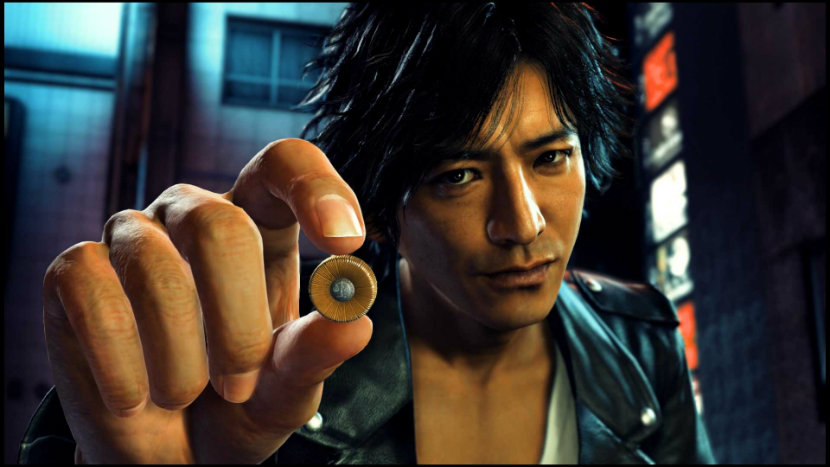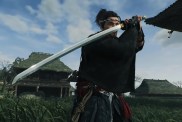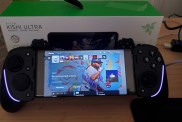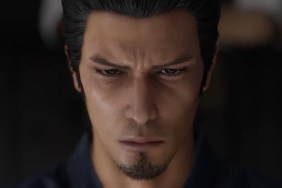In the past few years, Sega’s Yakuza series has exploded in popularity, and developer Ryu Ga Gotoku studio seems to have been able to leverage its new level of renown to try new things. Last year we saw the studio take on the legendary Fist of the North Star license. This year, a brand new original story (set, technically, in the same space as Yakuza) Judgment takes the familiar formula and drops it into a whole new vibe. While many of the tools used in Judgment will feel familiar to those who’ve been in the Yakuza trenches, they’re used to tell a compelling new story with a cast of fresh faces. That’s almost good enough.
Same City, Different Guy
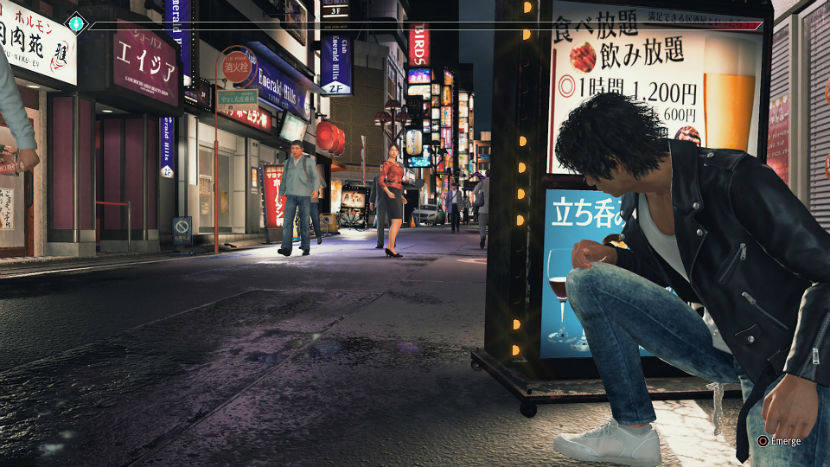
Judgment puts us in the shoes of Takayuki Yagami, a nice boy with a ridiculously convoluted backstory. He was an orphan, who became a Yakuza sort of, then studied to become a lawyer. Somehow that worked out, and he quickly became a sort of celebrity defense attorney, getting an acquittal for someone who may or may not have turned out to be a serial killer. Ashamed of himself, Yagami quits and becomes a private detective, trading his suit and pomade for a leather jacket and hair gel. He’s out to take odd jobs, make money, kick ass, and smoke some cigarettes, but a series of strange murders ropes him back into his past. Because that’s how detective stories go.
Much like any given Yakuza title, players will spend most of their time running around the fictional Japanese city of Kamurocho (based on the real city of Kabukicho). They’ll be running between waypoints, running to side quests, running to taxi stops, and in Judgment, running in chase sequences as well. In a lot of ways, the Ryu Ga Gotoku formula is a lot like River City Ransom, but in 3D. It’s part hub world, part brawler, part crime drama, and part silly video game nonsense.
Odd Jobs and Video Games
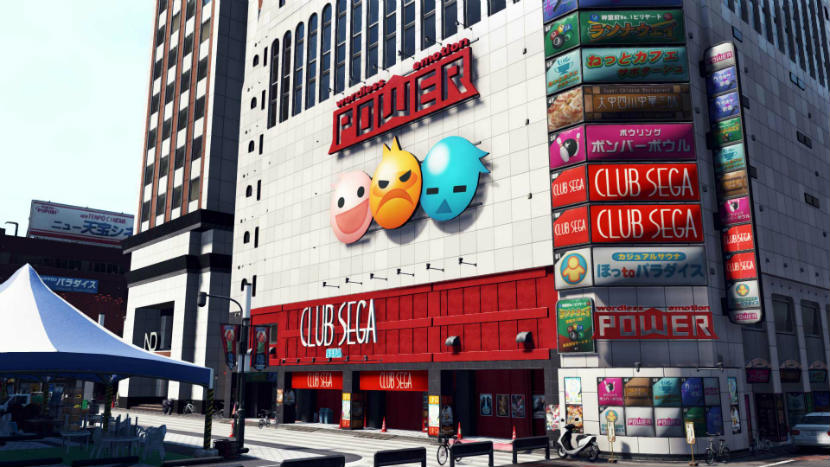
Unlike in Yakuza, the nonsense generally doesn’t seek you out in Judgment. Since Yagami is a private detective slumming about for side jobs, the signature bizarre side questing in Judgment has to be sought out by the player. There are multiple job boards of sorts, and players will need to sign up for stuff before it becomes available. This isn’t always the case, but for the most part, there’s more of a divide between the main scenario and side quests in Judgment compared to in Yakuza, in which the two more directly intersect.
This makes the story feel super important, and more of a main focus in Judgment. In Yakuza, the world feels more like a regular video game, in which there’s stuff all over the place and you just kind of do whatever, whenever. In Judgment, because the drama is in my face and the other stuff was much more in the background, it felt much more natural to just keep progressing the story, only bothering with side quests when they interrupted the story, or I felt like taking a break on my own accord. Judgment feels like a very focused sort of experience as a result.
Of course, all the silliness fans have come to expect from this framework is still present. Yagami can still waltz into Club Sega and play games like Virtua Fighter 5, which is awesome. He’ll still get wrapped up in goofy scenarios such as apprehending a panty thief, or chasing a famous actor’s toupee like it’s a fleeing criminal. That stuff is all there, and it’s all just as funny as ever. It just hangs back a little more to let the story breathe, and I appreciated that.
Speaking of letting the story breathe, Judgment also takes a more streamlined approach to combat. Players can still switch between styles in the middle of a fight, and there’s still a progression system based on accruing and spending points. But overall, things are pretty straightforward. The combat styles, Tiger and Crane, are based on fighting single targets vs crowds respectively. Yagami can opt for the big damage and open himself up for sucker punches more, or go for the lighter-impact crowd control. Yagami can also run into walls and rebound off of them for additional attacks, and of course there’s all the EX moves that briefly turn Judgment into a hilariously over-choreographed action flick. Progression is relegated to a rather simple set of abilities purchasable through SP, which is earned just through doing regular tasks throughout the game. Earning SP feeds into some of the more distinct aspects of Judgment, the investigation and conversation sequences.
Way of the Fist, and Traffic Cones, and Baseball Bats
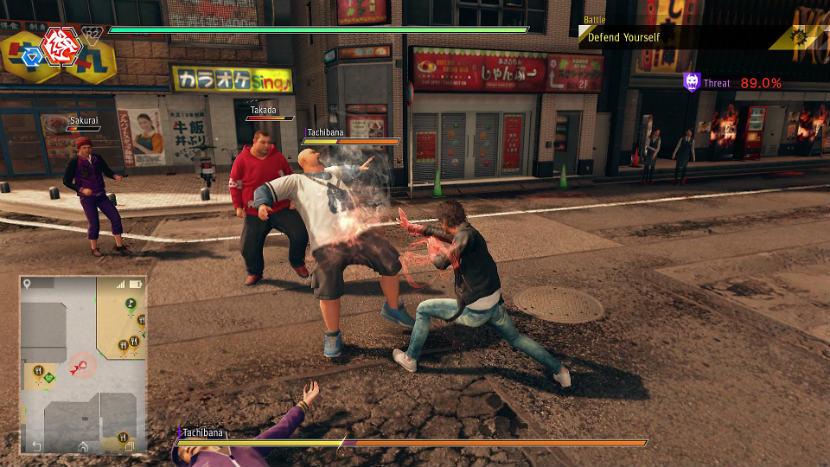
Not unlike the Ace Attorney series, Yagami often needs to investigate things like crime scenes. The game’s perspective shifts to first-person, and the player needs to hunt for clues. Once all the clues are found, the story can continue. Finding bonuses, such as a mewling cat found in each scene, net extra SP. In conversations, choosing the most appropriate or productive dialogue options first also net bonus SP. So even the player has to put their detective hat on at times. And, for taking the extra effort to think carefully about the situation, you get a little reward. It works, and never feels too gimmicky since all this stuff is tied to earning new abilities.
While a lot of Judgment’s world and story is carefully considered and well-crafted, when you look at it from the product perspective there are a few kinks to work through. It’s a little frame-y, with subtle performance dips throughout the experience. There are awkward transitions between running and triggering cutscenes, and some of the silly minigames rely on their humor to mask annoying button prompts. So while Judgment is clearly ambitious and full of stuff to do, it sometimes lacks polish in ways that can be distracting.
Also, despite how clearly effective this framework is, Judgment still suffers a bit from déjà vu. Just like Fist of the North Star: Lost Paradise, the experience often feels like you’re just playing a new Yakuza again, and that can make some of the smaller, connective tissue feel rote. Ryu Ga Gotoku Studio is clearly a house of great talent, and demanding innovation from a keyboard is kind of a boring thing to do, but Judgment relies so much on bolted-on stuff to separate itself from Yakuza it’s hard not to notice when you’re still just running around Kamurocho. Judgment has a distinct vibe and tone, especially from a storytelling perspective, but on a systems level it kinda doesn’t.
Judgment is a new game from a developer that has spent so many years on one story, with one protagonist, who sees the world through one perspective. This is the Yakuza experience, but with a refreshing change of character, tone, and voice. Judgment has a familiar skeleton, but the flesh and blood housing it is new. Longtime Yakuza fans have a lot to look forward to here. But, admittedly, having a new setting, new characters, and new mechanics laid over top of the same framework dulls some of that “fresh” feeling. It’s a totally new story from Ryu Ga Gotoku Studio, but it isn’t a totally new game. And that’s totally fine.
Judgment review code provided by publisher. Version 1.00 reviewed on a Standard PS4. For more information on scoring please see our Review Policy.
-
Compelling new story in the familiar style of Yakuza
-
Yagami is a neat lead, even if his backstory is a bit overdone
-
Investigation and dialogue sequences tie into character/combat progression
-
Gameplay loop is still just Yakuza with some extra gimmicks on top
-
Common (but not ruinous) performance issues
